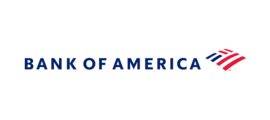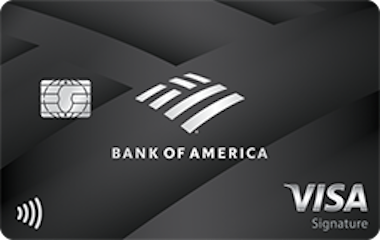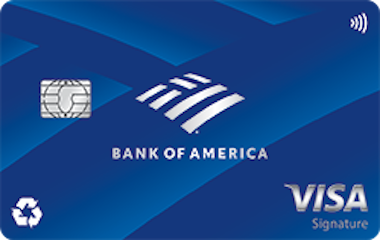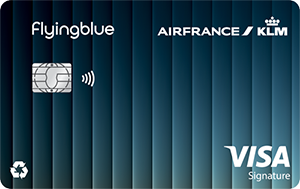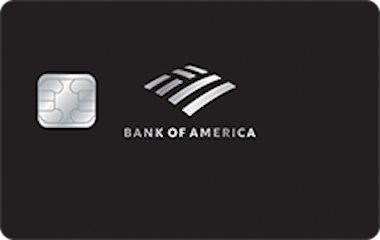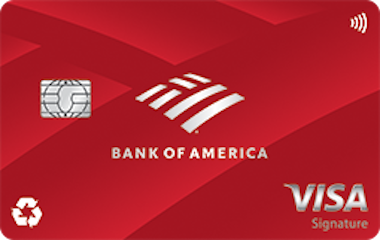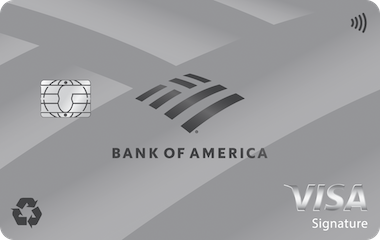Approval Rules B of A 2/3/4
Bank of America limits the number of personal cards issued by the bank that you can get within a certain time frame
Deep Dive into the B of A 2/3/4 Rule
This rule places a restriction on the number of new Bank of America issued cards you can open within the following timespan:
- Two new cards per two month period
- Three new cards per rolling 12-month period
- Four new cards per rolling 24-month period
This is different from Chase’s 5/24 rule in that it only applies to Bank of America issued cards. It does not apply to cards issued by other banks. So you could get four Bank of America cards, 2 Chase cards, and 1 American Express card in 24 months. But you could not get five Bank of America cards in that same time frame.
This does impact Bank of America’s co-branded cards like the Air France KLM World Elite Mastercard and the Alaska Airlines Visa Signature card. It does not appear to include any business cards offered by the bank, though.
The 7/12 Rule
There seems to be another loosely enforced rule that is tied to this one. If you do not have a Bank of America deposit account, you may be limited to three cards from any bank in that 12-month rolling period. If you have a Bank of America deposit account; however, that restriction jumps up to seven cards in 12-months. Again, this applies to cards from any bank, not just Bank of America. So this is like Chase’s 5/24 rule in that it places a restriction on the total number of cards you can get with any bank.
Important to know:
It may be worth it to open an account with Bank of America so you can be eligible for more cards. In fact, did you know that some banks often offer “signup bonuses” like credit cards do when you open an account with them? Bank of America has occasionally offered a bonus when you open a checking account through them and meet certain requirements, much like meeting a spending requirement with a new credit card. They have run promos offering $300 when you open an account and set up and receive direct deposits totaling $2000 or more within 90 days of opening the account. So not only can you be eligible for more cards from the bank with an account, you can get a little bonus for doing so as well.
Related Rules
How Does This Affect Your Credit Card Strategy?
Bank of America has some decent cards that you can earn some nice rewards from, but none are near the top of our recommended list. So this rule should not impact your card strategy very much. You most likely will never want the number of Bank of America cards necessary to trip any of these rules within the limited timeframe.
Important to know:
Most in the hobby try to stick to cards that offer the most flexibility when it comes to redemptions. A priority when choosing cards is being able to transfer to hotel and/or airline partners, as that offers the most valuable redemptions and the best bang for your buck. Bank of America does not offer the ability to transfer to partners, so that automatically moves the entire Bank of America points system down our recommended list.
Most valuable Bank of America cards
Bank of America has two personal co-branded airline cards - two from Alaska Airlines (Atmos Rewards Ascent Visa Signature and Atmos Rewards Summit Visa Infinite) and one from Air France KLM. We rank all three highest among the personal cards offered by Bank of America. They are both cards you may eventually want if you have loyalty to either airline or will be flying on either for an upcoming trip.
After those, the only reason you would want another card offered by Bank of America is if you need to cool off from the other banks’ top cards. The Bank of America Premium Rewards card is the one we’d recommend if you’re in this position. Outside of that card, though, no others move the needle enough to ever warrant taking up a spot in your 5/24.
Importance of this Rule
*
Because we don’t value the Bank of America system very much, this rule shouldn’t come into play for anyone in the hobby. We can’t see a scenario where you’d ever want the amount of Bank of America cards it would take to exceed this rule. There are too many cards out there from other banks that provide more value. Taking up so many spots in your 5/24 with cards from Bank of America just doesn’t make sense. So while it’s good to know this rule, you probably won’t ever need to worry about it.
Cards Subject to This Rule
FAQs
Are there exceptions to this rule?
Yes, business cards from Bank of America don’t count against this rule. The bank also appears to be more lenient when issuing its cards if you also have a deposit account with the bank.
How do I check my status?
The Points Navigator was built partially to help keep track of all the rules out there. Each bank has its own set of rules when it comes to issuing cards and handing out signup bonuses, and it can get overwhelming trying to keep track of them all. If you load all your cards into our system, we’ll keep track of everything for you. We can alert you when you’re about to apply for a card that you won’t be approved for because of one of these rules. We’ll also help you choose your next card based on your personal situation, and we’ll do things like keep track of all your annual fees so you don’t ever pay one that you don’t get value out of.
Do business cards count for this rule?
No, business cards don’t count against Bank of America’s 2/3/4 Rule.
Do product changes on existing cards count for this rule?
No, this rule limits the number of new cards you can open within a certain timeframe. If you change an existing card to a different version of the card, this doesn’t count as opening a new account, so it should not count against this rule.
About Approval Rules
Collecting credit card points is largely driven by understanding and abiding by bank rules regarding approval (or disapproval) of cards. So here's what you need to know:
- Approval rules are rarely fully publicized by the banks
- We use our own research and data points from other users in creating the rules listing
- Our goal in sharing/using the rule listings is to provide you guidance to avoid getting declined
- There can sometimes be exceptions to the rules, but we try to take a more cautious approach in advising you.


